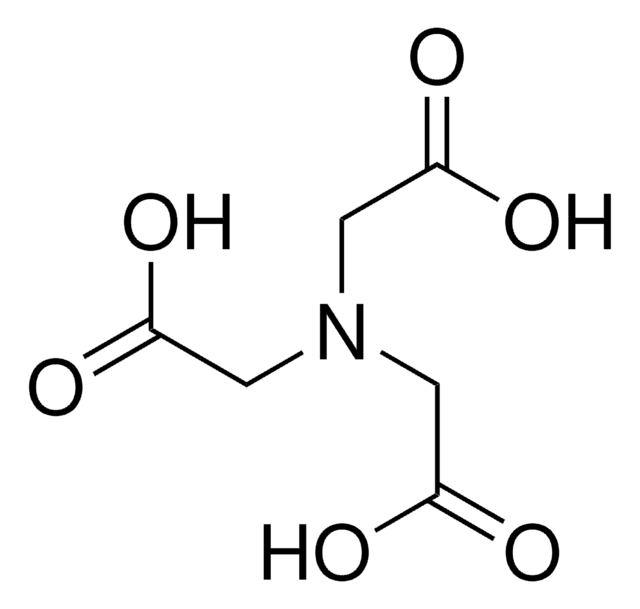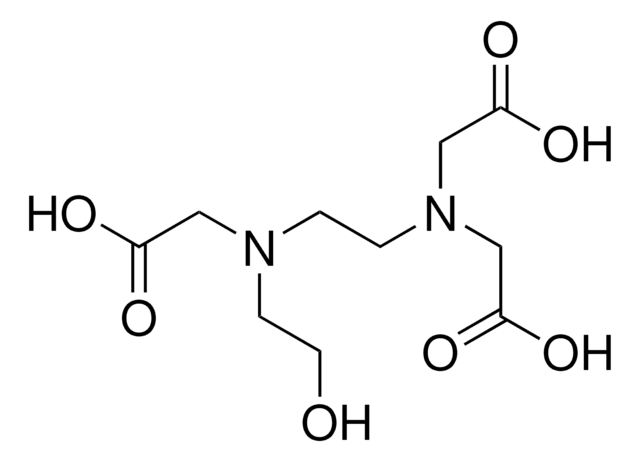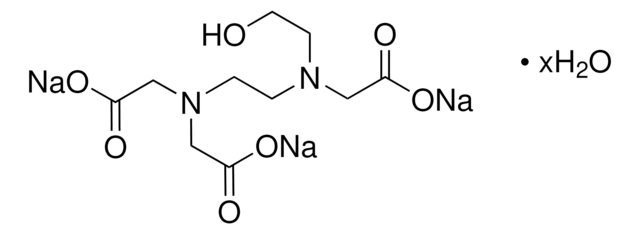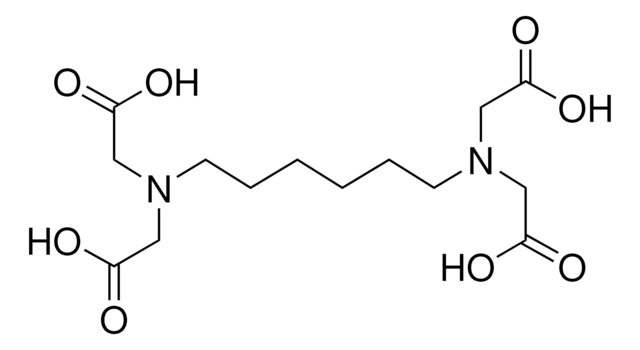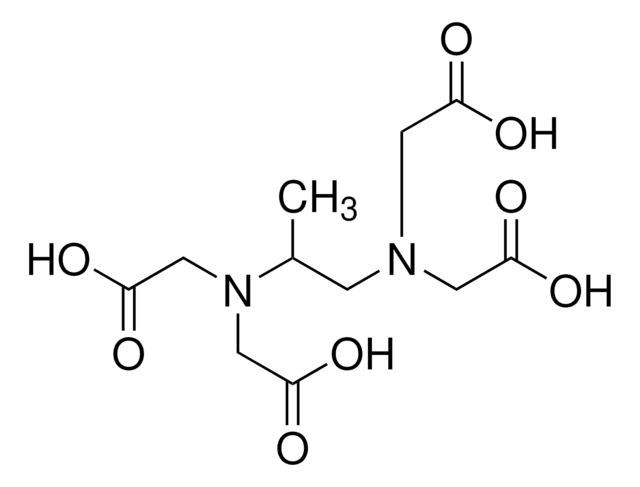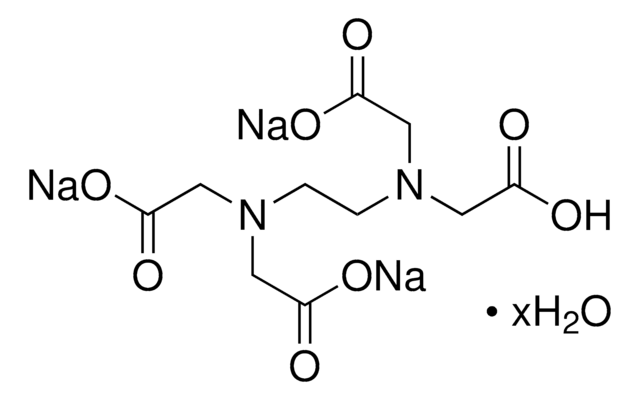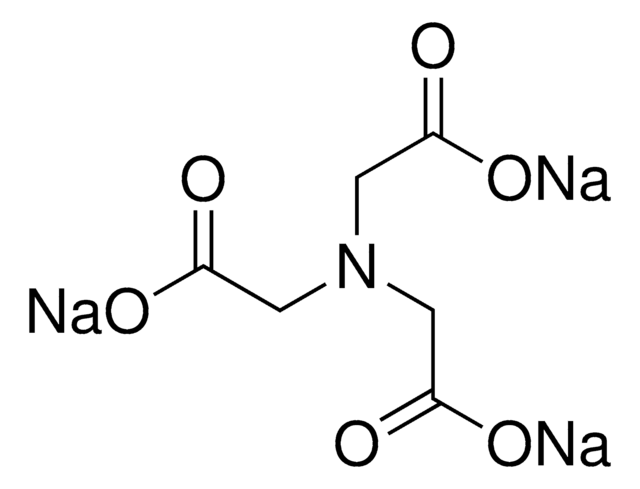92698
Ethylenediamine-N,N′-disuccinic acid trisodium salt solution
~35% in H2O
Synonym(s):
N,N′-Ethylenedi-(aspartic acid) trisodium salt, EDDS-Na3, Trisodium ethylenediamine-N,N′-disuccinate
Sign Into View Organizational & Contract Pricing
All Photos(1)
About This Item
Empirical Formula (Hill Notation):
C10H13N2Na3O8
Molecular Weight:
358.19
Beilstein:
8177837
UNSPSC Code:
12352106
PubChem Substance ID:
NACRES:
NA.22
Recommended Products
form
liquid
Quality Level
concentration
~35% in H2O
SMILES string
OC(CC(C(O)=O)NCCNC(C(O)=O)CC(O)=O)=O.C
Looking for similar products? Visit Product Comparison Guide
General description
Ethylenediamine-N,N′-disuccinic acid trisodium salt (EDDS) is an aminopolycarboxylic acid (APCA), which is used as a complexing agent. It forms stable water-soluble complexes with metal ions. EDDS has a better chelating property than EDTA. It can also be used as a flushing agent due to its eco-friendly characteristics and high biodegradability.
Application
EDDS (chelating agent) along with natural montmorillonite (NM) can be used in the photochemical degradation process of 17β-estradiol (E2). EDDS-NM complex can also be employed as an efficient photocatalysis system for wastewater treatment. Cu and Zn ions in the contaminated agricultural soil can be removed using EDDS via Cu and Zn complex formation.
Ethylenediamine-N,N′-disuccinic acid trisodium salt solution has been used as a chelate to study its effect on Eucalyptus camaldulensis tree under controlled deficit irrigation (CDI) condition.
powerful, readily biodegradable chelant
Storage Class Code
10 - Combustible liquids
WGK
WGK 3
Flash Point(F)
Not applicable
Flash Point(C)
Not applicable
Personal Protective Equipment
dust mask type N95 (US), Eyeshields, Gloves
Choose from one of the most recent versions:
Already Own This Product?
Find documentation for the products that you have recently purchased in the Document Library.
Customers Also Viewed
Chelant-enhanced heavy metal uptake by Eucalyptus trees under controlled deficit irrigation.
Fine P, et al.
The Science of the Total Environment, 493, 995-1005 (2014)
Marco Race et al.
International journal of environmental research and public health, 15(3) (2018-03-23)
This paper presents the results of an experimental study aimed at investigating the effect of operative parameters on the efficiency of a soil flushing process, conducted on real contaminated soil containing high amounts of Cu and Zn. Soil flushing tests
Our team of scientists has experience in all areas of research including Life Science, Material Science, Chemical Synthesis, Chromatography, Analytical and many others.
Contact Technical Service